How we were friends with the Austrian Empire
“For though in all his wars stories The Austrians won, after most of these wars, they had to concede something. ”Robert Musil. "Man without properties"
This country has long since disappeared from the map, and history experts know about its existence, and yet at the beginning of the 20 of the 20th century it was one of the great powers that determined the paths of European politics (along with Germany, Russia, France and Britain). Yes, it was the “weakest of the five” in 1914, but nevertheless the great European power. After the First World War, it disappeared forever from the political map of the world: too many different peoples inhabited it - Germans, Czechs, Hungarians, Croats, Poles, Romanians, Slovaks and Bosnians. Not even a trace remained on the map of its former greatness. Oddly enough, its disintegration did not provide her former nations with either freedom, peace, or well-being, or genuine independence. Such a funny paradox: the Austrian (later twinned Austro-Hungarian) empire had numerous and serious flaws, which its critics did not get tired to say, but it provided its people with its own, not external, system of governance. All of these nations could love or dislike the official Vienna, but it provided them with the status of citizens of a great empire, security and independence from other major players.
With the fall of Austria-Hungary, these lands turned into a toy in the hands of the remaining great powers, and it does not matter where orders came from: from London, Berlin, Moscow or Washington. The fact is that the former nations of the once great power became, after 1918, the objects of world politics. The empire was gone and there was no one to stop the triumphant march of Hitler to Austria and the Czech Republic ... As all further political life showed: there could not be a “small, cozy, independent Czechoslovakia”. The same thing affected both Hungary and Austria ... So the “liberation” of 1918 of the year had very, very ambiguous consequences: why, strictly speaking, live by order from London, Paris or Washington is better than executing teams from Vienna? What is freedom here? And when, strictly speaking, after 1918, the same Czechs were completely free and independent? Is “freedom” possible in principle on this imperfect planet? Yes, for example, there were very strong contradictions between the Germans and the Czechs, this is certainly so. But in parliament, the Czechs had a very significant influence, and this was the last time that the opinion of the Czechs seriously influenced the policies of a great power.
After 1918, their opinion was already of little interest to anyone: the “small” power of independent politics, as a rule, does not conduct. This explains the Anschluss 1938 of the year. Paraphrasing a well-known expression, one can say: "who does not want to feed his empire, will feed someone else's." So, with regard to the "patchwork empire" of Franz Joseph - not everything was so bad. The economy, culture, industry developed. The country, one way or another, tried to find a solution to its political problems. And one of these problems was Russia and the “Slav issue”. But, oddly enough, for most of the history of relations between the Russian and Austrian empires, these relations were quite good. Before the First World War, which put an end to the rule of the Romanovs and the Habsburgs, Russia and Austria had never fought seriously. Russia fought with anyone: with Poland, Sweden, France, Prussia, Turkey or England. But not with Austria. Moreover, very often Russia and Austria were allies. For example, the war for the Polish inheritance (1733-1735). Allies. The war for the Austrian legacy (1740-1748), a difficult and dangerous war for Austria - they wanted to “divide” it. Allies. For Russia, participation in this war is largely a matter of prestige, for the Austrian Empire it is a matter of survival.
The eighteenth century was rich in big wars: the Seven Years War, as Winston Churchill called it, “World War,” a war that went on in Europe, in the New World, and in India, and on many seas and oceans. In this war, the future of humanity was largely determined. Russia and Austria are allies (we shall leave Peter III's strange demarche behind the scenes). It was the appearance of Russian troops in the theater of military operations that saved Austria from defeat. Who remembers this now in Austria? But this is exactly how it was! The Russian army and then changed the course of history. The army of Frederick was gorgeous, but the Russians broke it off the whole party. Over 200 years before that very 1945 ... Everything once happens for the first time ... So Berliners have nothing to not love Russia. But we are not talking about Prussia, but about Russian-Austrian relations. So, speaking of them, it is impossible not to mention the wars against Turkey. It is somehow forgotten that in the 18 century in these wars, Austria was our ally: 1735-1739 is the fifth Russian-Turkish, Austria is our ally (although it quickly got out of the war, having lost Belgrade). 1787-1792 is the seventh Russian-Turkish, Austria is our ally. In the course of these wars, Russia gained control of the northern coast of the Black Sea, having won a number of brilliant victories at sea and land over the Ottomans. And Count Suvorov flashed there, and Admiral Ushakov ... Austria is an ally. No, of course, not out of philanthropic motives - Turkey is Austria’s historical enemy in control of South-Eastern Europe. And yet. Allies.
It seems that all the members of the forum in one way or another read War and Peace (after the reform of writing, the name is misleading). So, there is a lot written about the Russian army in Europe, and this army was fighting side by side with the allies. With the Austrians. Austerlitz - the battle of the three emperors. So it was: on our side, Alexander I and the Austrian Emperor Franz II. A little earlier: the transition of Suvorov through the Alps and everything connected with it. The war with the French, and Austria - an ally of Russia. Or rather, Russia is an ally of Austria, the war was far from our borders. Count Suvorov also had an Italian campaign. He had a lot of things in general (by the way, there is one petty rogue who writes under such a pseudonym and publishes books under him in Russia, which is somehow wrong). So, the whole series of wars with revolutionary / Napoleonic France is Russia’s ally of Austria. It was. We can say that it was precisely the defeat of Napoleon’s Great Army in Russia that saved Austria’s independence (as did Prussia, by the way). That same 12 campaign of the year saved not only Russia. She changed the course of European history, allowing Berlin and Vienna to regain the status of great powers.
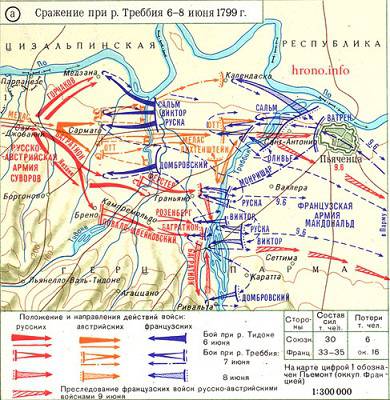
It may be recalled that the Austrian empire tried many times to fight Napoleon, and each time suffered a defeat. And with each such defeat, the position of Vienna became more and more difficult. There was even a reform of the army, but it did not help. Rather, it helped, but not to the end, not enough to begin to adequately fight the French. There was no American marines then, and there was no one to land on the beaches of Normandy. The British army has traditionally been very small and engaged in mysterious evolutions on the Iberian Peninsula. So the only hope remained on the Russian imperial army. She did not let us down.
As is known, after the war, the so-called Vienna Congress took place, which determined the future of Europe after Napoleon and for the entire first half of the 19th century (at least!). So, there were no chances for the Congress of Vienna without defeating Napoleon in Russia. Wellington under Waterloo “hit the tails,” in 1815, Napoleon had no chance of winning - all of Europe was against him. Napoleon's victory at Waterloo would give him a few extra months in power, no more. "Great Army" was destroyed in Russia. We have a lot to discuss the impact of this victory on the fate of Russia, but much less talk about its impact on the fate of Europe.
So in 1812, not only the fate of Moscow was decided, but also the fate of Vienna. History, of course, does not have a subjunctive mood, but it does not have a certain “general line” either. There is no scenario that “was originally laid.” History is not a movie, and if Kutuzov had lost 1812 in the summer of th, the whole world history would have gone completely differently. For Russia, most likely, this option would be much worse, but for Austria it would be just disastrous - it would simply be cut, almost like after WWI. And it would simply cease to be a great power even then, at the beginning of the 19th century, that is, a hundred years earlier than in reality. However, the defeat of Napoleon in Russia allowed everything back "back." And the Austrian Empire again became a great power with an independent foreign policy. It should be added that after the defeat of Napoleon in Russia, the Russian army moved to Europe to finish it off, although there were options. And, most likely, without the foreign campaign of the Russian army, Napoleon would have sat. Just because the sensible was the commander and statesman. And Russia had no obligations to Europe and could not have it. However, the Battle of the Nations under Leipzig and the triumphal entry into Paris.
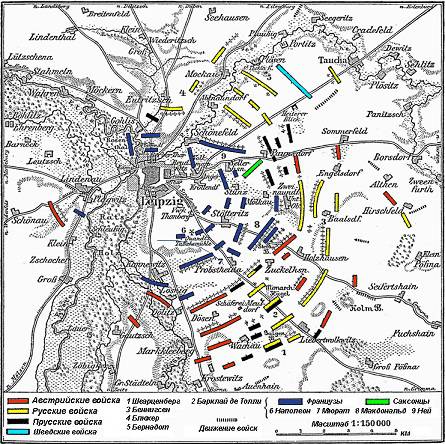
What happened next? And then a lot of things happened: “The Holy Alliance” and everything connected with it. It must be admitted that the outstanding role of Metternich in determining European policy in the first half of the 19th century (from the Congress of Vienna to the 1848 revolution of the year) could exist only with the strong support of Russia. The Austrian empire was certainly a wonderful state (the book “Roots and the Crown” was recommended, for example), but it was not an economic or military leader in the 19th century and certainly needed external support from the outside. No matter how offensive it sounds for the Austrian patriots (including one little-known painter).
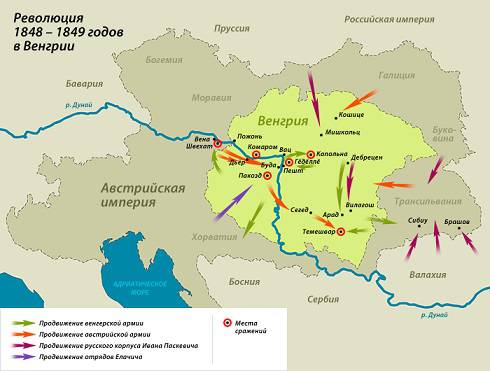
The Austrian Empire was losing its capabilities and its influence. And here it was difficult to do something. This was especially vivid at the time of the 1848 crisis of the year: yes, revolutionary trends took place in France and in the German lands. But Austria stood on the brink of disaster: the Hungarian uprising was growing rapidly, and it was impossible to suppress it at the expense of the internal resources of the empire. The situation and the empire of the Habsburgs was saved by the Russian expeditionary corps of General Paskevich. After all, the Russians were allies of Austria, historical allies ... And soon, at last, Austria had the opportunity to repay Russia with good for good: the Crimean War began.
And Austria, of course, repaid Russia for all the good that was. Some (including Wikis) cite this as an example of "pragmatic politics." It is very difficult to say: a break in relations with Russia, and the gap was complete and irrevocable (the Russians do not like traitors), put the empire in a very difficult position - having lost a Russian ally, Vienna did not acquire, and could not acquire, a replacement for Russia in Paris or London. And political pressure in Europe was growing. And then the glorious battle of Solferino began to boil, blood flowed like a barrel of wine ...
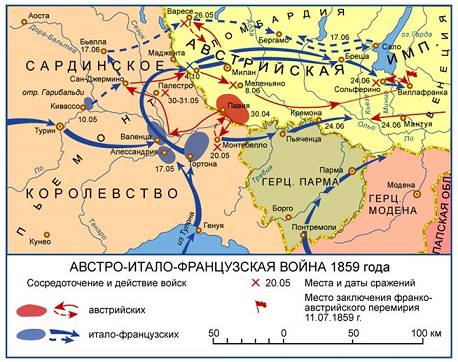
According to the results of the 1859 campaign of the year (Austro-Italian-French war), the French and Italians knocked out the Austrians from Lombardy ... Such things, no one is to blame. And by the way, yes, when the French and Italians beat the Austrians, in Germany and even in Prussia (!) A powerful wave of sympathy for the Austrian rose brothers. Fraternal feelings - they are so fraternal, you can't overlap them with any kind of policy. Further, the Prussians beat the Austrians at Sadovaya / Koniggrac and the empire literally fell into nothingness (Italy otgryzla Venice!). After the defeat of Prussia with the allies of Napoleon’s empire, the III thought of revenge had to be abandoned. And in the end, following the results of Austria-Hungary (as a result of Sadovaya - Austria-Hungary), it became, in fact, a vassal of the German Empire. But theoretically - it was still a great power.
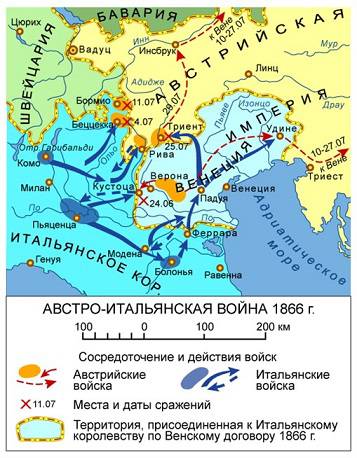
Then the entry into the First World War together with Germany and the Ottoman Empire ... Then Brusilovsky breakthrough and the disaster of 1918. And there is no more empire. By the way, Adolf Hitler was just the product of the collapse of this very empire, in his memoirs he described in detail and extremely hard experienced the crisis of his beloved fatherland. Even for him (a hard-nosed German patriot), the crisis of Austria was absolutely obvious long before July of the 1914 year. In Russia, for some reason, Hitler is viewed mainly as a German, in which, of course, there is a certain amount of truth: he was a general German patriot and he preferred to fight in the German rather than the Austrian army. All right, but as a person and a politician he is in many ways a product of not the growing German Empire, but the disintegrating Austrian. From there, by the way, comes his hatred of the Czechs and Jews who have “arrived in Vienna” ...
Thus, the decision of the Austrian emperor Franz Joseph (that very one!) To act diplomatically against Russia during the Crimean War had very far-reaching and ambiguous consequences for his empire and its citizens. Yes, perhaps, for all of Europe, this very decision had very, very ambiguous consequences: it was the rift of St. Petersburg with Vienna and Paris that ensured the rapid rise of Prussia! Neither Russia intervened in 1866, nor in 1870.. The active participation of Russia in these events could change everything, literally everything. And the history of the twentieth century could go very differently.
But in the current reality, being on the edge of the abyss, the French and Austrians were surprised to find that saving them there is nobody. Moreover, Napoleon III led foreign policy in such a way that the complete defeat and humiliation of France were extremely beneficial to Russia. But it became clear to the French only after Sedan. France nevertheless possessed some margin of safety and could “reboot” and start a new war with Germany (in alliance with Russia!). Austria after the defeat at Sadovaya, in fact, ended as a true great power. Over forever.
- Oleg Egorov
- p.im9.eu
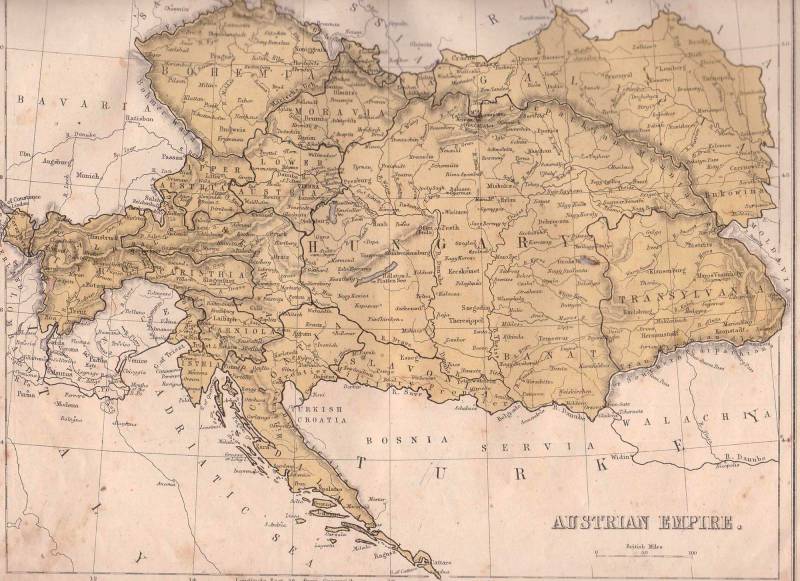
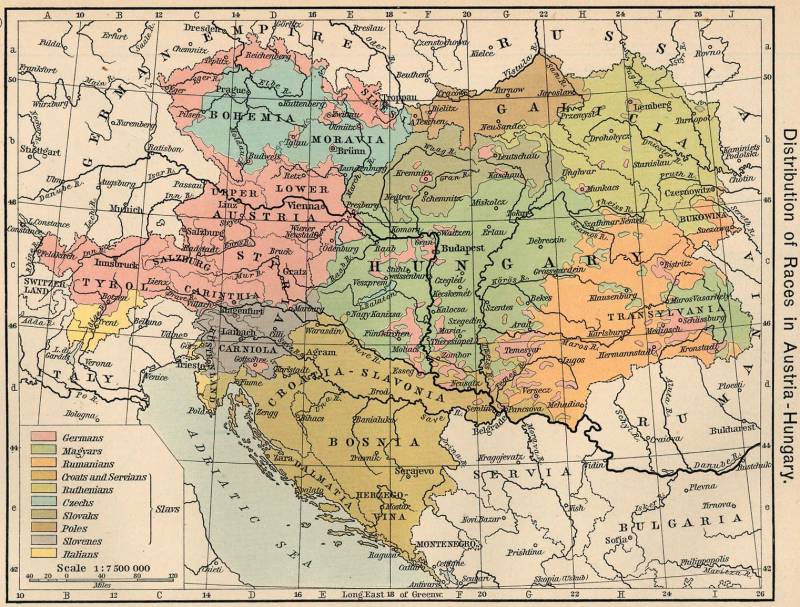
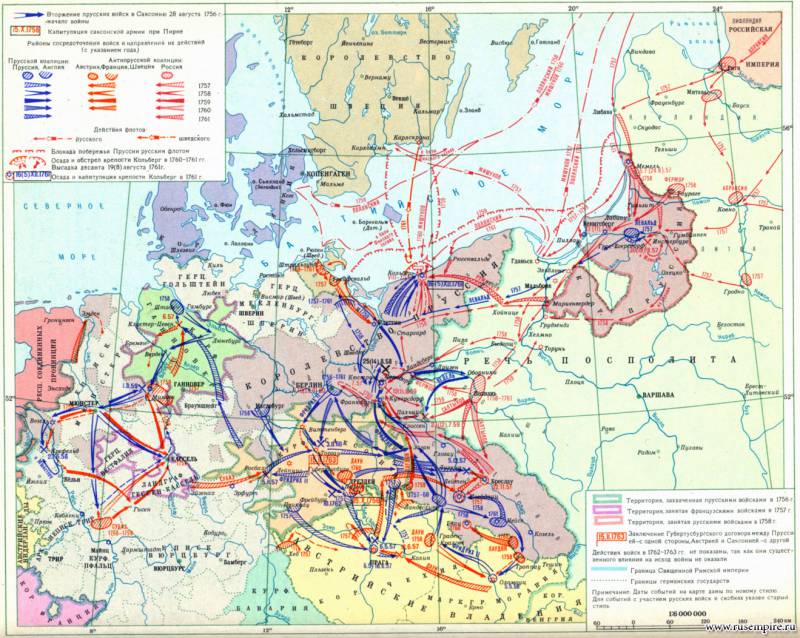
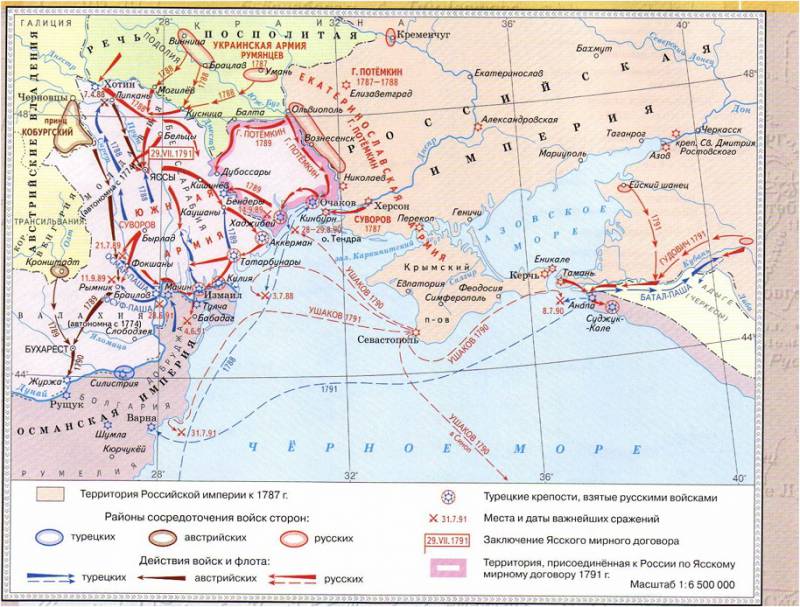
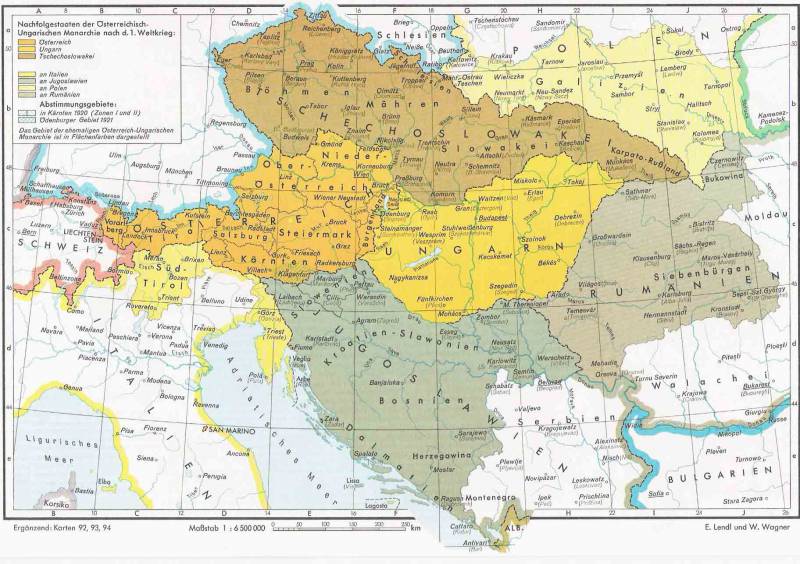
Information